January 24, 2024 | Caitlin Baumhart, MPS, MPH

In January, the Zambia Education Network for Implementation Science Training in Health (ZENITH) marked a significant milestone with the successful launch of the Implementation Science Institute (ISI) in Lusaka. This intensive one-month research training seminar, a core component of the ZENITH, aims to equip Zambian public health and medical professionals with the skills and knowledge necessary to innovate and improve HIV service delivery.
The ISI, a collaborative effort between the University Teaching Hospital (UTH) in Lusaka and the University of Maryland Baltimore (UMB), brought together ten enthusiastic and motivated students for its inaugural training. These students, selected from a large pool of promising public health and medical professionals, received rigorous training to learn about the core competencies of implementation science research.
The implementation science curriculum was taught by leading HIV implementation scientists from UMB and UTH, including Dr. Man Charurat, Dr. Marie-Claude Lavoie, Professor Lloyd Mulenga, and Dr. Cassidy Claassen. Dr. Charurat and Dr. Lavoie traveled to Zambia from Baltimore to provide in-person lessons for two weeks each, and together, they covered essential topics such as the principles and core lessons of implementation science research and frameworks, research methodologies, and the art of writing grants and manuscripts. Additionally, Dr. Kirsten Stoebenau, a highly experienced qualitative researcher with UMCP, taught several qualitative lessons. The expertise and dedication from these trainers ensured that the ISI trainees received top-notch training tailored to the unique challenges and opportunities in Zambia’s healthcare landscape.
One of the standout features of the ISI was its practical approach. The trainees used weekly lessons to design an implementation science project based on their own interests or current work projects. Trainees utilized their hands-on knowledge to adapt implementation science frameworks to design their research projects. This experiential learning reinforced their theoretical knowledge but also allowed them to practice in real time with weekly feedback from Dr. Lavoie and other trainers.
The inaugural ISI cohort has now formed a supportive network of implementation science practitioners committed to applying their skills to achieve sustained HIV epidemic control in Zambia. Additionally, all ISI trainees have applied to the Masters of Health Sciences in Implementation and Dissemination Science program at UMB. The ISI has provided a strong foundation for these trainees to further their studies in implementation science. The ripple effect of this training is expected to extend far beyond the individual participants as they return to their respective roles and disseminate their newfound knowledge and innovative approaches.
The successful implementation of the ISI stands as a testament to the power of education and collaboration in addressing public health challenges. It underscores ZENITH's commitment to building a robust implementation science capacity in Zambia, ultimately contributing to the country's goal of achieving sustained HIV epidemic control.
Contact
Jennifer Gonzales
Communications and Public Relations Manager
jennifer.gonzales@ihv.umaryland.edu
Related stories
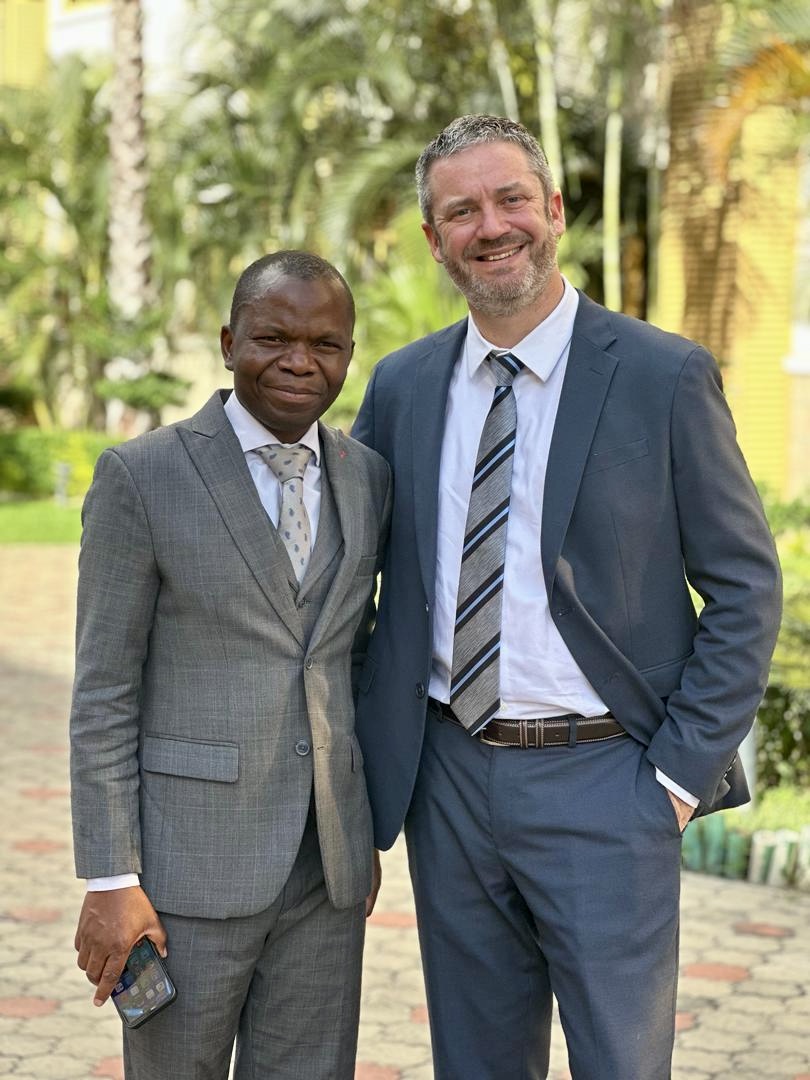
Wednesday, July 17, 2024
The ZENITH Initiative - Empowering Zambia
The Zambia Education Network for Implementation Science Training in Health (ZENITH), a research training collaboration between the University Teaching Hospital (UTH) in Lusaka and the University of Maryland Baltimore (UMB), is an educational program designed to provide short-, medium-, and long-term implementation science capacity in Zambia. The aim of ZENITH is to prepare Zambian professionals with research skills and knowledge to develop HIV service delivery innovations for key and vulnerable populations to help Zambia achieve sustained HIV epidemic control.
.png)
Friday, April 12, 2024
PreVAIL Presented at CROI 2024 Conference
The Prison PrEP Values, Adherence, and Implementation (PreVAIL) study was developed to address these knowledge gaps surrounding HIV prevention among justice-involved populations. Representing a collaborative effort between UMB, CIDRZ, and Zambia Correctional Services, PreVAIL is one of the first studies observational studies on PrEP uptake, persistence, and adherence among incarcerated persons.
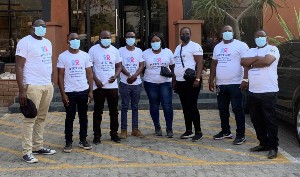
Tuesday, September 20, 2022
National HIV Testing, Counselling, and Treatment Day in Zambia
Zambia remains one of the countries that the HIV and AIDS epidemic hard hit. These factors necessitate spreading awareness of the importance of testing and treatment among Zambians.
Tuesday, May 03, 2022
Combating Gender-based Violence in Zambia
Across three districts, 110 mentors were trained through CIHEB-Zambia’s partnership with the Determined, Resilient, Empowered, AIDS-free, Mentored and Safe (DREAMS).
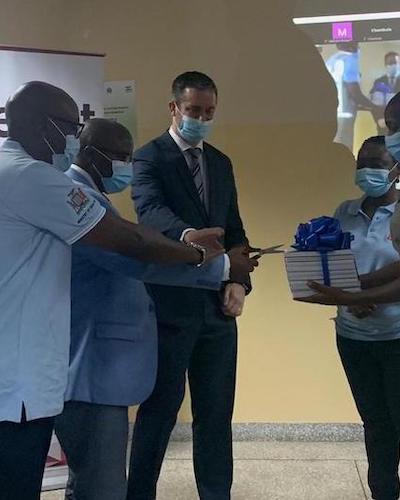
Friday, November 19, 2021
Ciheb Helps Author First Antibiotics Guidelines for a Zambian Hospital
Ciheb and the University of Maryland, Baltimore, in conjunction with University Teaching Hospital in Lusaka, Zambia, have created the UTH antibiotics guidelines, the first of its kind for a health facility in Zambia.
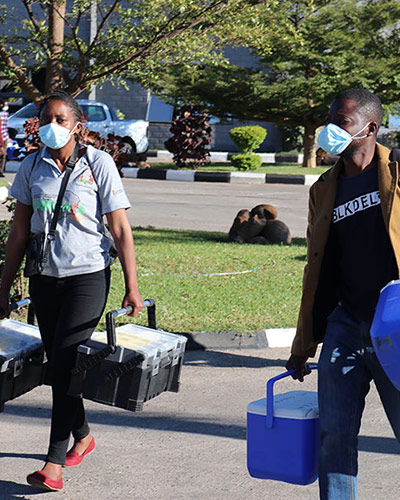
Monday, August 30, 2021
ZAMPHIA Prepares to Restart After Election Pause
After a one month pause, the Zambia Population-based HIV Impact Assessment (ZAMPHIA) is prepared to restart field data collection in September. The survey now enters its final stage of field work following a break in August for the 2021 Zambian general elections.
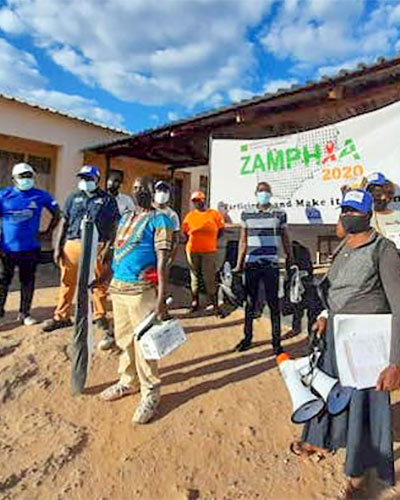
Tuesday, June 08, 2021
ZAMPHIA Survey Begins Fieldwork
The Zambia Population-Based HIV Impact Assessment (ZAMPHIA) is now underway! The survey was originally scheduled to take place in 2020 but was paused due to the COVID-19 pandemic. Now that COVID-19 in Zambia has improved, the Government of Zambia, in partnership with Ciheb and others, is moving forward with the relaunch of this PEPFAR-funded assessment and have put in place all necessary safety measures to protect staff and participants. ZAMPHIA is the second ever population-based HIV impact assessment performed in Zambia.
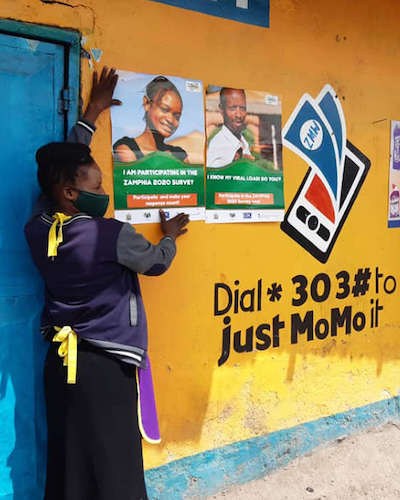
Thursday, May 27, 2021
ZAMPHIA Survey Prepares to Relaunch in Zambia
The Zambia Population-Based HIV Impact Assessment (ZAMPHIA) is preparing to recommence fieldwork at the beginning of May, and staff and communities are being mobilized in anticipation of the relaunch.

